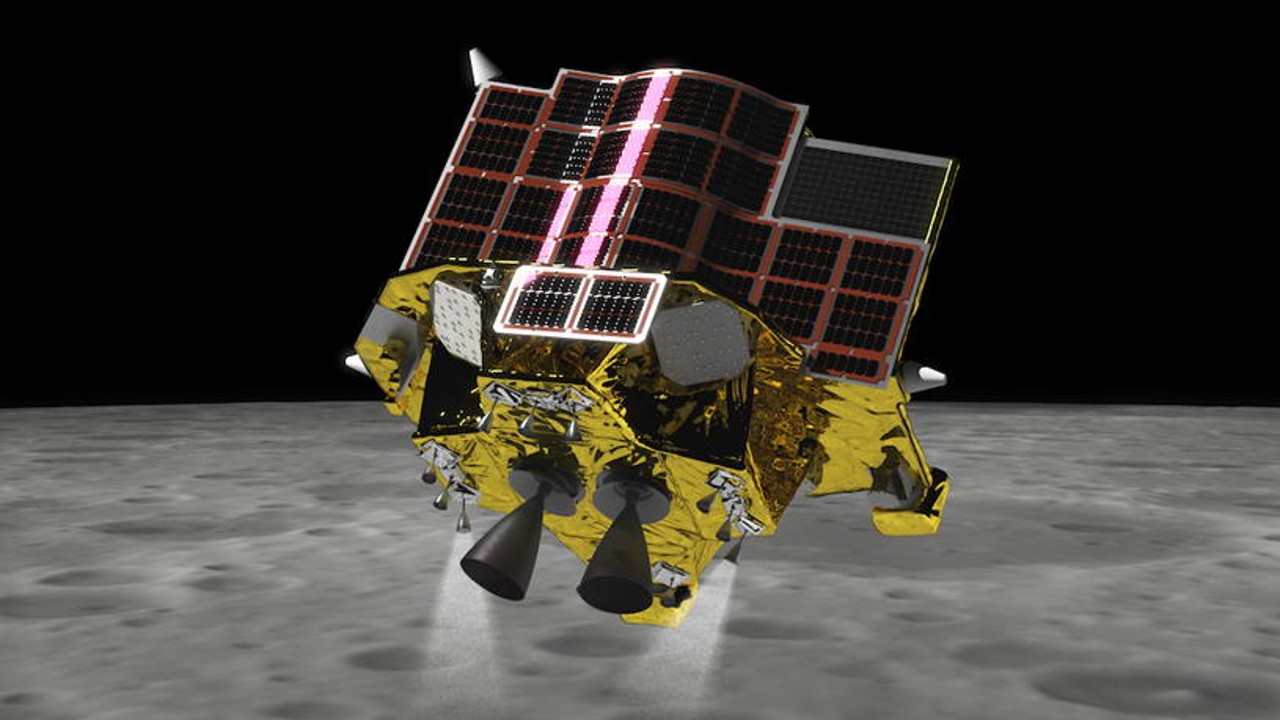
Japan will make moon-exploration history in the middle of next month, if all goes to plan.
The Japan Aerospace Exploration Agency (JAXA) announced today (Dec. 5) that it's targeting Jan. 19 for the lunar landing of its robotic SLIM ("Smart Lander for Investigating Moon") spacecraft.
The newly revealed plan calls for SLIM to begin its descent toward the moon on Jan. 19 around 10 a.m. EST (1500 GMT; 12 a.m. on Jan. 20 Japanese Standard Time). Touchdown — which would mark the first-ever soft lunar landing for a Japanese spacecraft — is scheduled to occur about 20 minutes later.
Related: Missions to the moon: Past, present and future
The 8.8-foot-long (2.7 meters) SLIM probe launched atop a Japanese H-2A rocket along with an X-ray space telescope called XRISM on Sept. 6. XRISM deployed into low Earth orbit, but SLIM began making its circuitous, fuel-efficient way to the moon.
If all goes smoothly, SLIM will enter lunar orbit on Christmas Day, then spend nearly a month prepping for its technology-demonstrating touchdown attempt. Success would make Japan just the fifth nation to put a probe down on the moon, after the Soviet Union, the United States, China and India. This landing could also open doors for even more ambitious exploration feats down the road.
"SLIM aims to achieve a pinpoint landing with an accuracy of less than 100 meters [330 feet]," JAXA officials wrote in an update today.
"This marks an unprecedentedly high-precision landing on a gravitational body such as the moon, and the results are anticipated to contribute to the programs such as international space exploration that are currently under study," they added.
SLIM also totes two miniprobes, both of which will deploy onto the lunar surface after landing. The duo will photograph the touchdown site, help the SLIM team monitor the mothership's status and provide an "independent communication system for direct communication with Earth," according to JAXA's mission press kit.
SLIM's lunar landing try won't be the first for a Japanese spacecraft; a private probe had a go earlier this year.
That spacecraft — the Hakuto-R lander, built by Tokyo-based company ispace — successfully reached lunar orbit but crashed during its touchdown attempt after getting confused by the rim of a moon crater.







